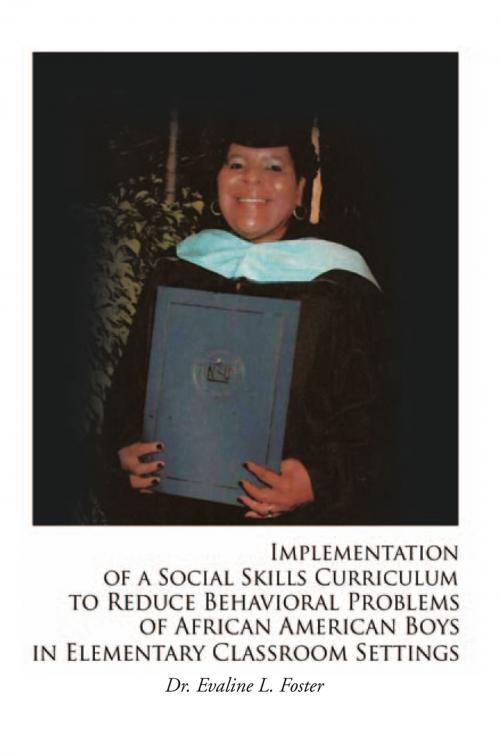Implementation of a Social Skills Curriculum to Reduce Behavioral Problems of African American Boys in Elementary Classroom Settings
Nonfiction, Social & Cultural Studies, Social Science| Author: | Evaline L. Foster | ISBN: | 9781462859924 |
| Publisher: | Xlibris US | Publication: | April 28, 2011 |
| Imprint: | Xlibris US | Language: | English |
| Author: | Evaline L. Foster |
| ISBN: | 9781462859924 |
| Publisher: | Xlibris US |
| Publication: | April 28, 2011 |
| Imprint: | Xlibris US |
| Language: | English |
Implementation of a Social Skills Curriculum to Reduce Behavioral Problems of African American Boys in Elementary Classroom Settings. Foster, Evaline L., 2004: Applied Dissertation, Nova Southeastern University, Fischler School ofEducation and Human Services. Peer Support Groups/Anger Management/Conflict Resolution/Social Skills/Bullying/Teacher Student Relationships This applied dissertation was designed to reduce the disruptive verbal and physical behaviors within the regular behavior enrichment classroom during the 2003-2004 school year. From August 2002-May 2003, 18 home suspensions, 25 in-school suspensions, and 85 office referrals due to extremely disruptive verbal and physical behaviors were recorded for students enrolled in the regular education behavior enrichment classroom. The purpose of this applied dissertation was to modify the negative behaviors of students into appropriate behaviors that would allow them to productively function academically, socially, and emotionally in the regular education classroom setting. The writer developed lesson plans and strategies to reduce the verbal and physical behaviors of students within the regular behavior enrichment classroom. Strategies taught included (a) facilitation of peer support groups and instruction, (b) modeling, (c) reinforcement of conflict resolution skills, (d) self-management techniques, (e) anger management techniques, and (f) social skills lessons. This applied dissertation also has the potential to provide other educators with the strategies necessary to maintain positive behaviors in the classroom. An analysis of data revealed a decreased number of verbal and physical antisocial behaviors in students. Through this implementation, students learned how to better self-manage their behaviors and use conflict resolution skills to solve controversial issues The presence of these factors helped to motivate students, improve behavior, increase cognitive developments levels, and strengthen parent/teacher relationships.
Implementation of a Social Skills Curriculum to Reduce Behavioral Problems of African American Boys in Elementary Classroom Settings. Foster, Evaline L., 2004: Applied Dissertation, Nova Southeastern University, Fischler School ofEducation and Human Services. Peer Support Groups/Anger Management/Conflict Resolution/Social Skills/Bullying/Teacher Student Relationships This applied dissertation was designed to reduce the disruptive verbal and physical behaviors within the regular behavior enrichment classroom during the 2003-2004 school year. From August 2002-May 2003, 18 home suspensions, 25 in-school suspensions, and 85 office referrals due to extremely disruptive verbal and physical behaviors were recorded for students enrolled in the regular education behavior enrichment classroom. The purpose of this applied dissertation was to modify the negative behaviors of students into appropriate behaviors that would allow them to productively function academically, socially, and emotionally in the regular education classroom setting. The writer developed lesson plans and strategies to reduce the verbal and physical behaviors of students within the regular behavior enrichment classroom. Strategies taught included (a) facilitation of peer support groups and instruction, (b) modeling, (c) reinforcement of conflict resolution skills, (d) self-management techniques, (e) anger management techniques, and (f) social skills lessons. This applied dissertation also has the potential to provide other educators with the strategies necessary to maintain positive behaviors in the classroom. An analysis of data revealed a decreased number of verbal and physical antisocial behaviors in students. Through this implementation, students learned how to better self-manage their behaviors and use conflict resolution skills to solve controversial issues The presence of these factors helped to motivate students, improve behavior, increase cognitive developments levels, and strengthen parent/teacher relationships.















